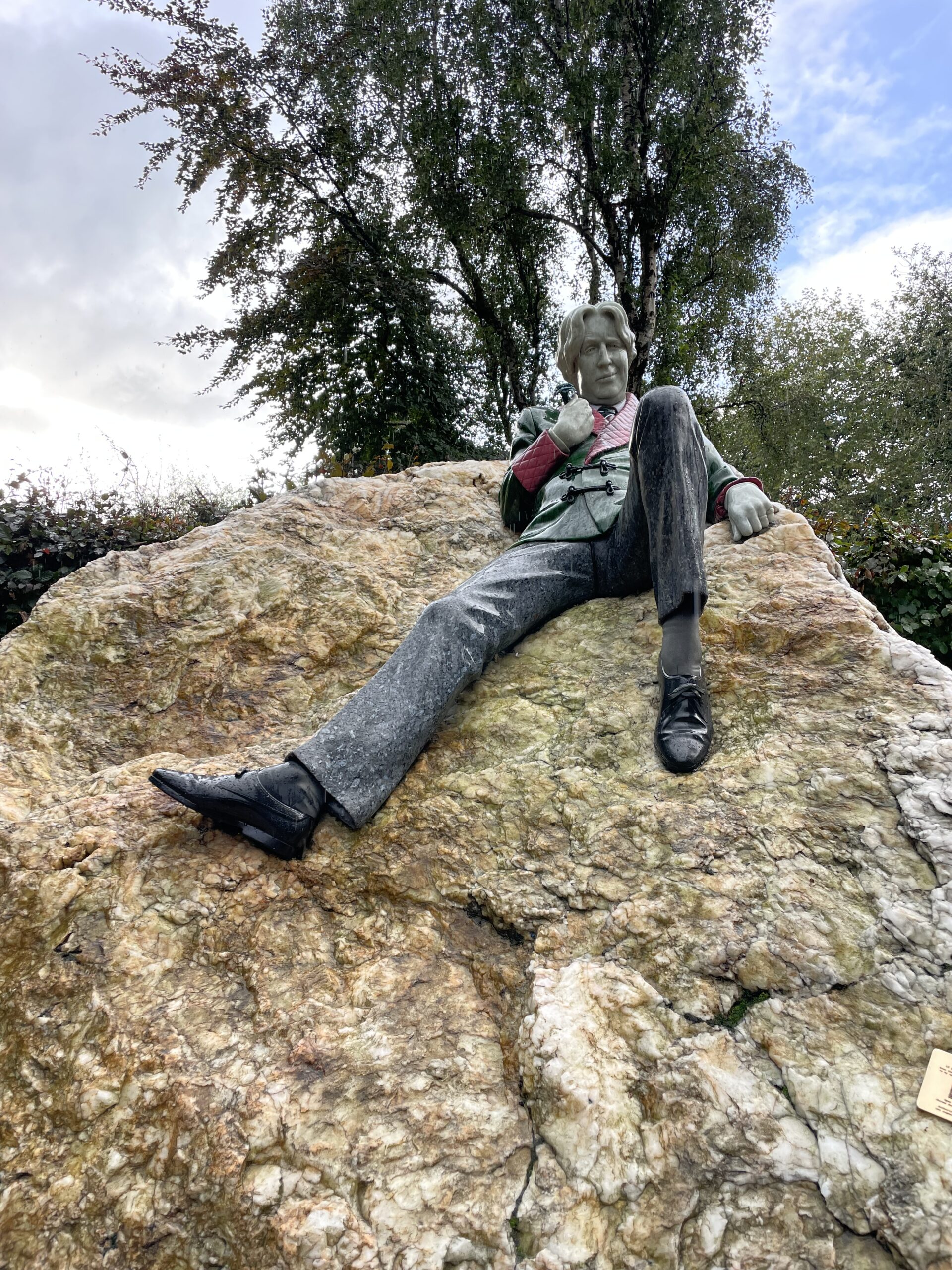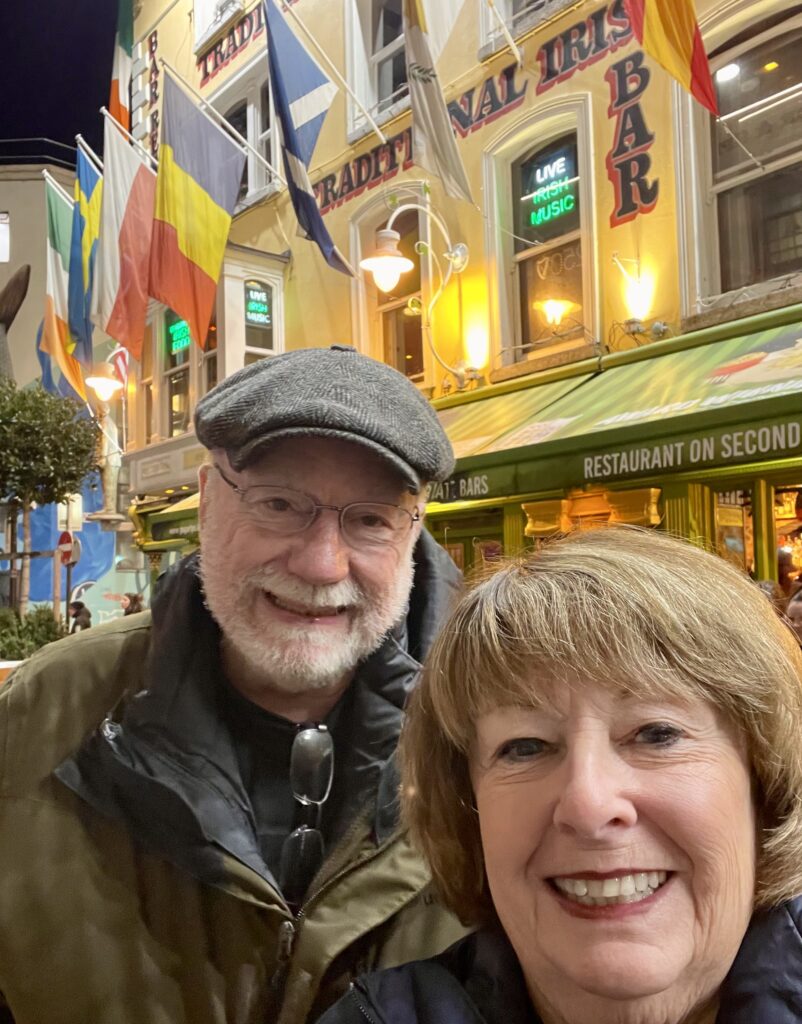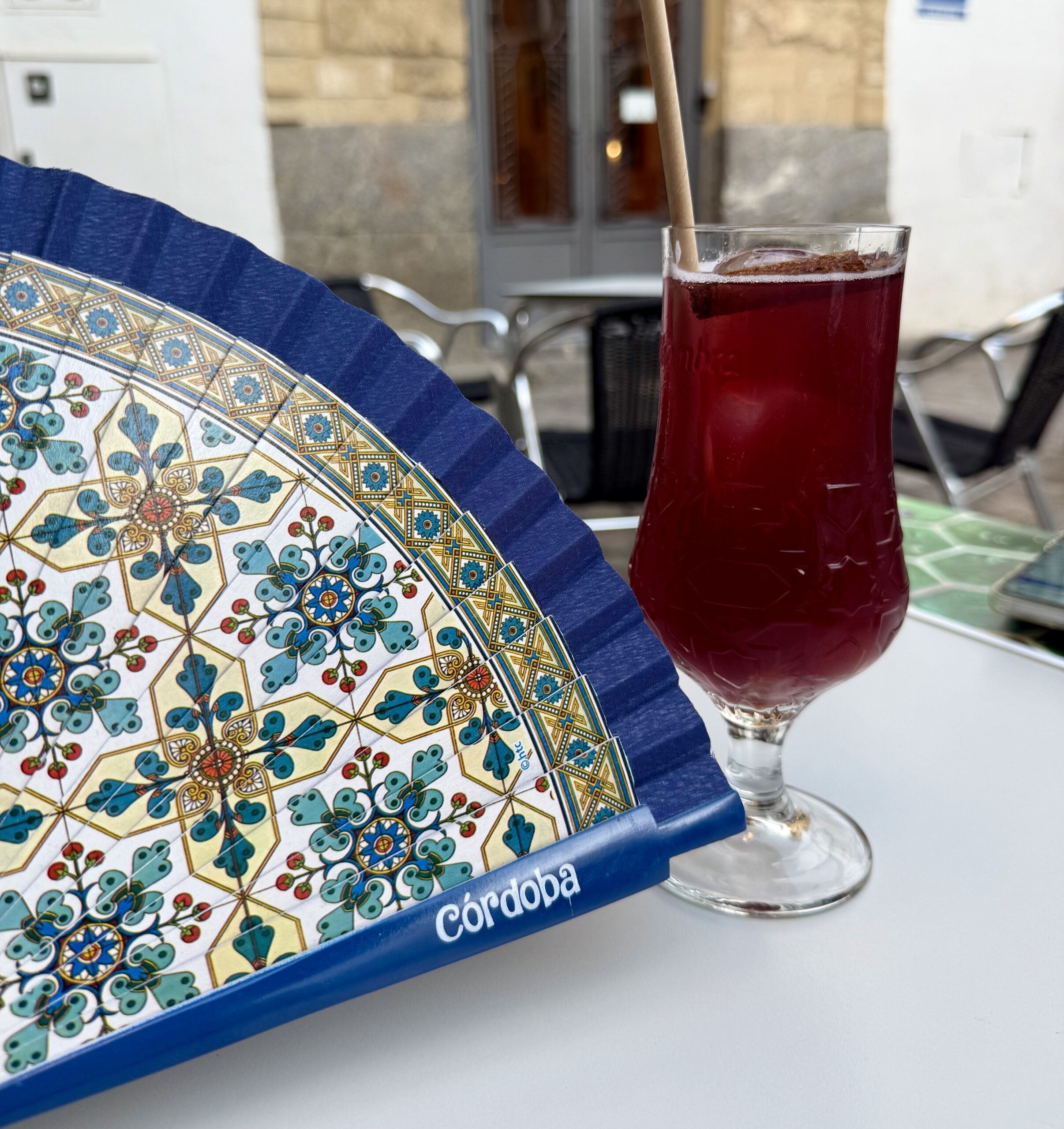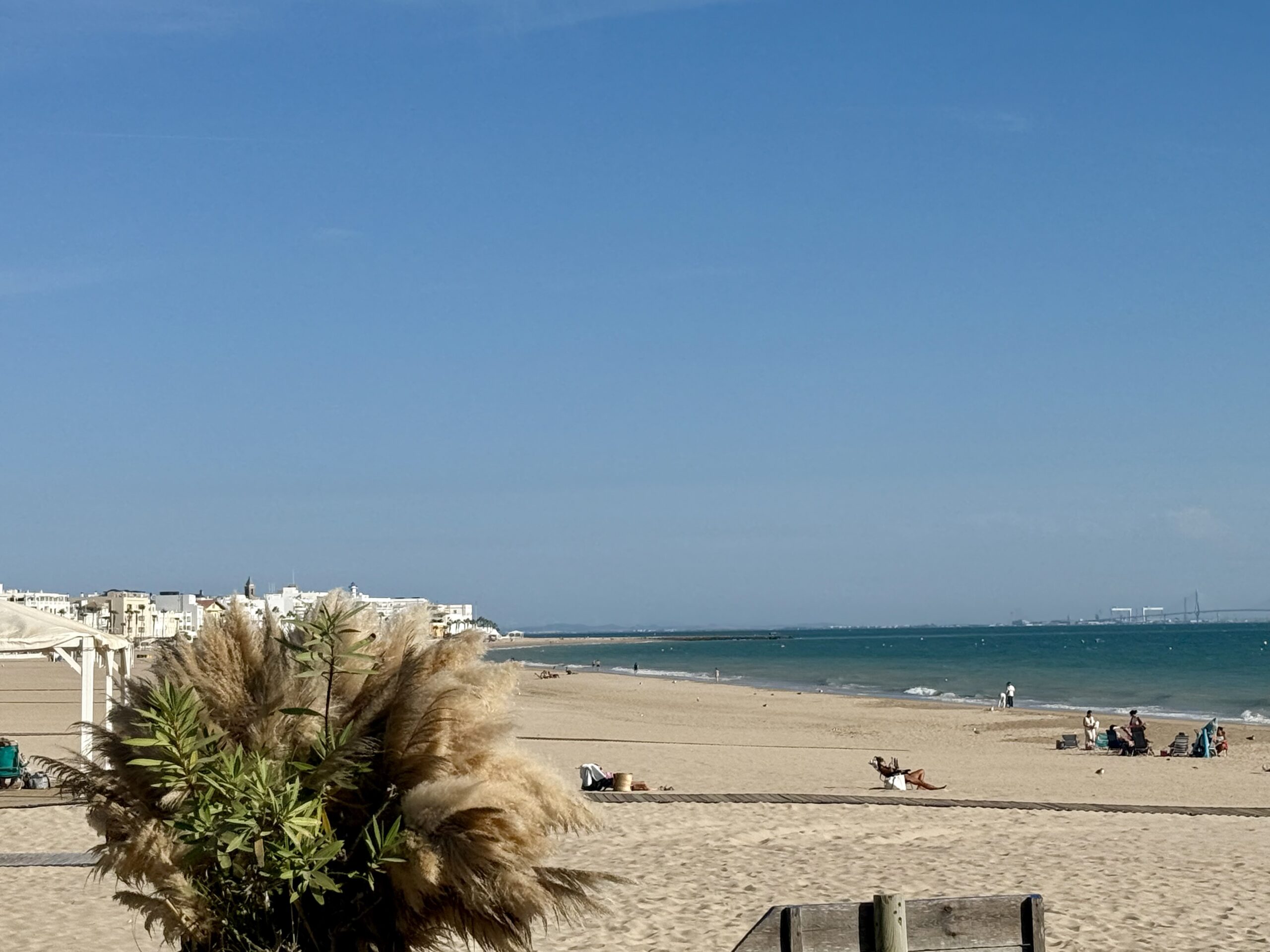
The importance of being Dublin
October 27, 2023
We stumbled on a pub in Dublin’s Temple Bar section that was alive with Irish guitar and fiddle music even in the late afternoon. We shuffled in among the SRO crowd who were clapping and singing along to a lively Irish standard, and soon lucked into a table in a far corner with a site line to the performers. We ordered a round of Guinness, and settled in for what we hoped would be a long evening of the vibrant pub life that’s been bubbling out of Dublin’s pores since we got here.
That’s not bad. A bit heavy handed for me. Still, I wished I’d said that.”
” Oh, you will, Oscar, you will,” I said and winked.
Carol excused herself to the ladies, as I flipped open my notebook and began writing. I didn’t even notice the tall, slender stranger that slid into Carol’s seat across from me.

Temple Bar is touristy, but electric
“What’s the subject?” He asked in a mix of brogue and high English. He seemed utterly self-possessed, yet giving off an air of genuine interest in what I was up to.
“I’m trying to make sense of what I’ve seen of Dublin,” I answered.
“How long have you been here?” The stranger had a mirthful snicker on his face.
“Three days.”
His eyes widened slightly, but he showed no emotion. “How long have you been married?”
“All told, more than forty years.”
“Do you believe you understand women?”
“Somewhat. Maybe. Not really.”

Still. I’m drawn into discussions with Dublin’s ghosts…
“Then double those forty years, and that’ll be your answer for understanding Dublin.”
“Why is that?”
“What did I just say?”
I decided to press ahead. “I’m thinking Dublin holds a secret to how Americans can better understand our own history of oppression.”
“Are you on holiday or researching a PhD? I thought you Yanks just wanted to ignore it. You know, history’s written by the winners and all that bourgeois rot.”
.”But in Dublin it seems its tragic history is written by the losers, and it’s revered everywhere. The statues, the monuments, even the bullet holes in the monuments and statues are adored.”
“That history is etched in the faces of every Irish man and woman you’ll meet, too,” the stranger intoned solemnly.
“That’s what I’m thinking,” I said sensing he’d understand what I was about to say.
“Americans can’t truly see the pain our history has caused in the faces of black and indigenous people. As white people, we just can’t or won’t relate to those faces. But to see that same pain in the faces that look more like us -white faces- maybe that’s the bridge we need to finally understand and heal from our own history.”
The stranger seemed to regard me as some sort of apparition. “Just how many of your countrymen do you believe can think like that?”
“Well,” I stammered, “maybe not as many as there once were. But we can’t just give up, right? There’s just so much love in Dublin for its past. To me, that means so much more than simply understanding it, don’t you think?”
The stranger stood up abruptly, regarding me with a gimlet eye. “That’s not bad. A bit heavy handed for me. Still, I wished I’d said that.”
” Oh, you will, Oscar, you will,” I said and winked.
“By the way,” he added, “lighten up on philosophy. Dublin is a fun town. Try to enjoy some of it.”
Carol returned with a concerned look on her face. “You look like you’ve seen a ghost,” she said to me.

...and its revered heroes (Charles Stuart Parnell pictured here)
“All the ghosts in this city are alive and well,” I said. “Trust me.”
She insisted we order another Guinness, and that I could tell her all about it.



A well done bit of ghostly blarney